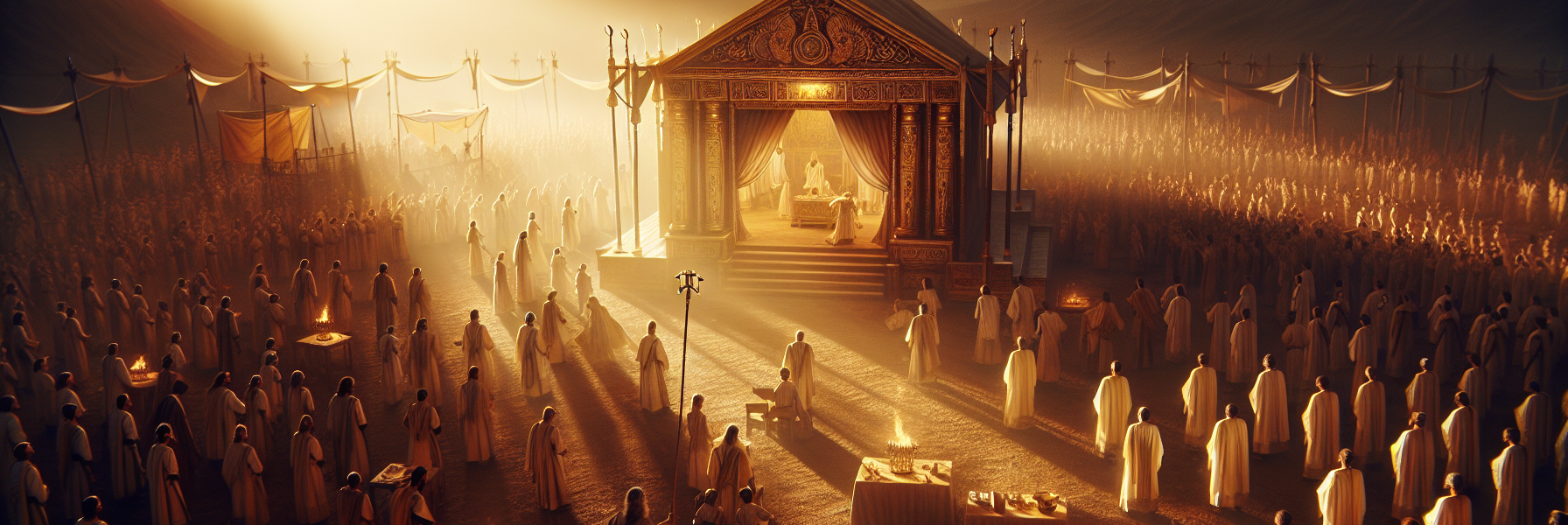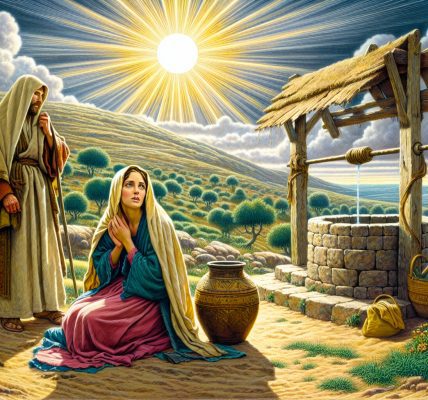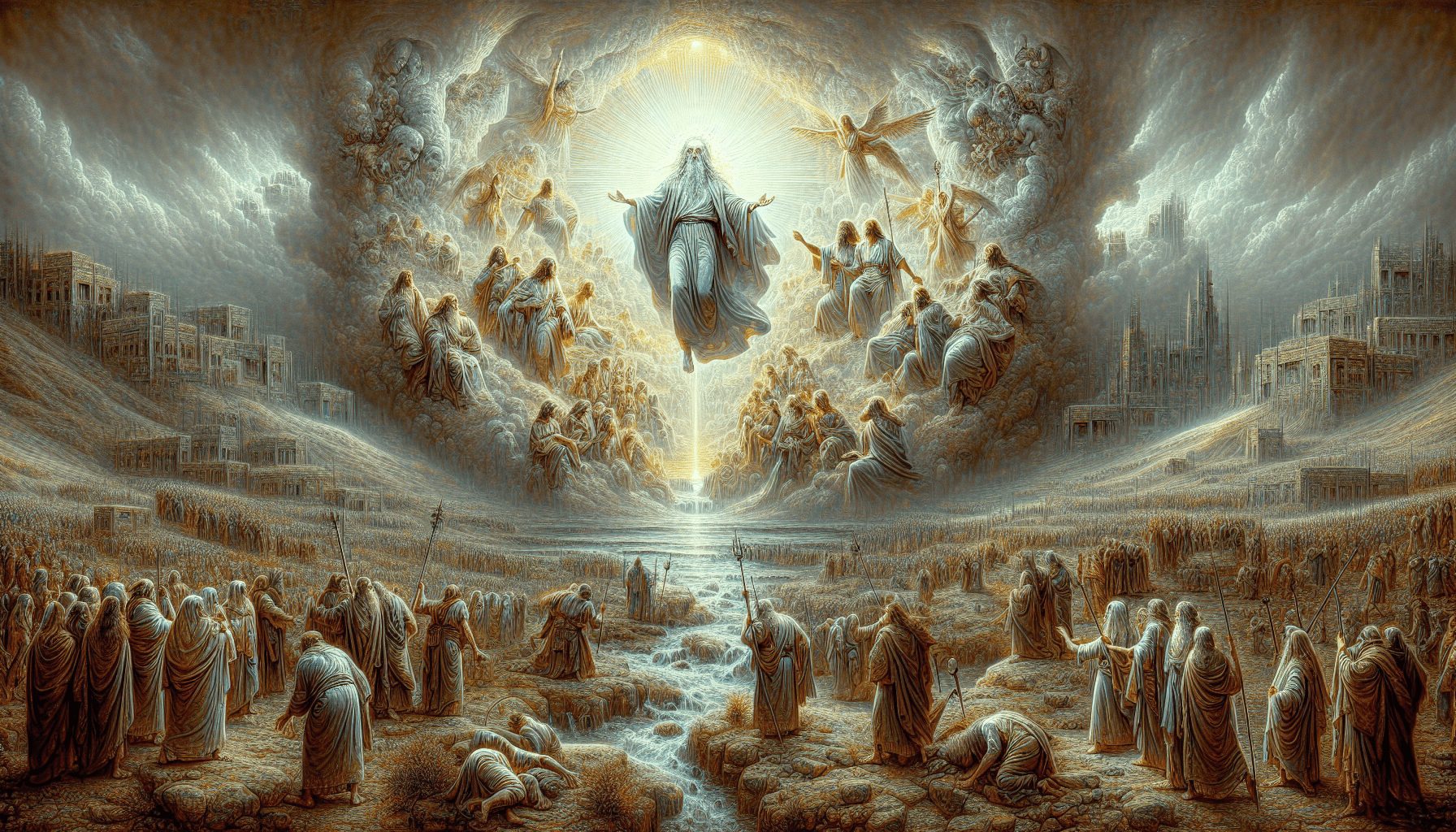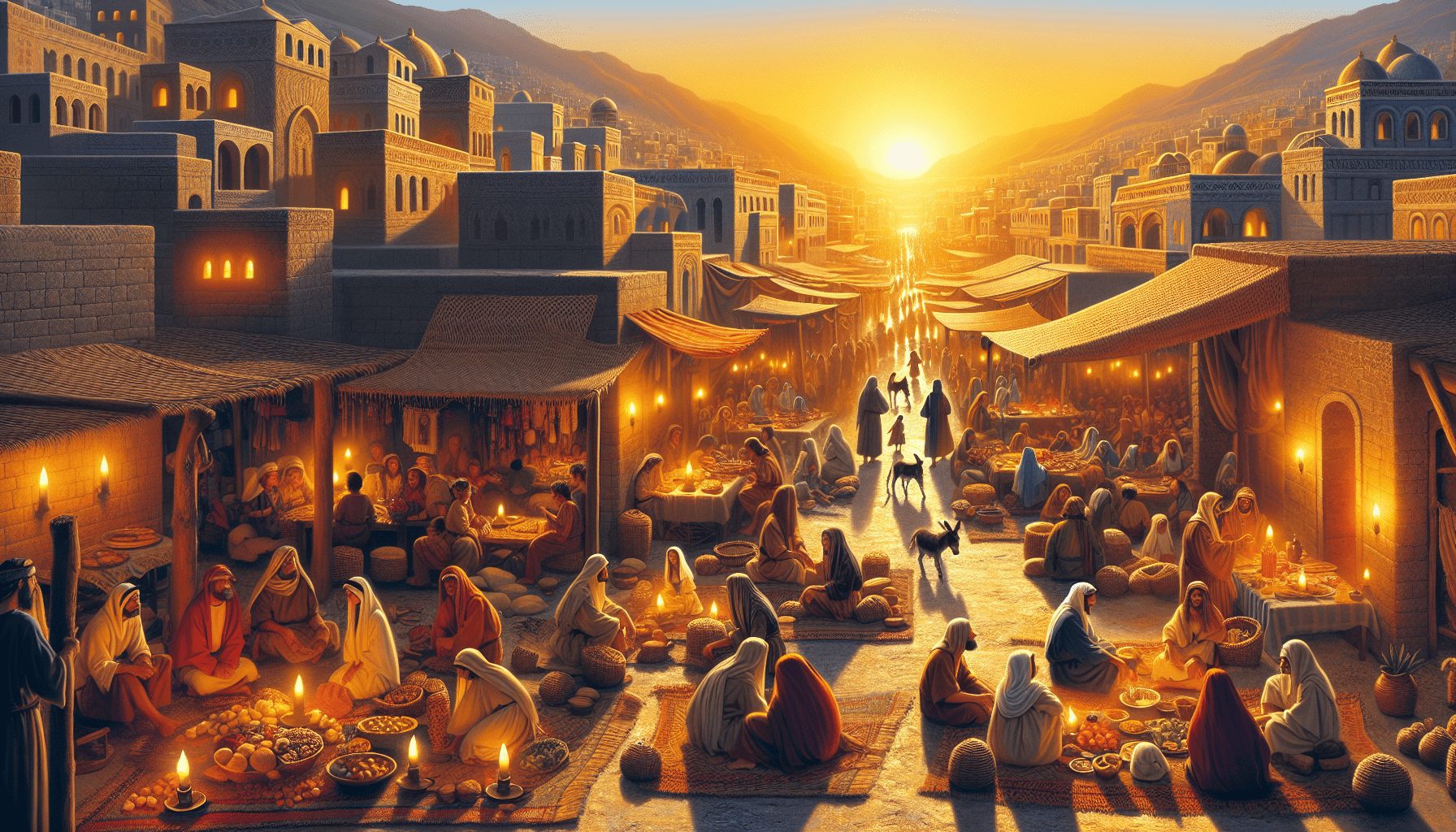**The Sacred Duty of the Priests**
The sun rose over the tents of Israel, casting golden light upon the Tabernacle, where the presence of the Lord dwelled among His people. The morning air was thick with the scent of burning incense and the faint echoes of Levites chanting praises. Inside the sacred enclosure, the priests moved with solemn reverence, preparing for the day’s offerings. Among them was Eleazar, son of Aaron, a man chosen by God to serve in the holiest of duties.
The Lord had spoken clearly to Moses concerning the priests, and Moses had relayed these commands with unwavering authority. *”Speak to the priests, the sons of Aaron, and say to them: ‘No one shall defile himself for the dead among his people, except for his closest relatives—his mother, his father, his son, his daughter, his brother, or his virgin sister…'”* (Leviticus 21:1-2).
Eleazar remembered these words well. Just moons before, his cousin had passed into the arms of the Lord, and though his heart ached, he had not allowed himself to become unclean by touching the dead. Only for his immediate family could he mourn in such a way, for he was set apart—consecrated to the service of the Most High.
The priests were to be holy, unblemished in their conduct, for they offered the bread of God upon the altar. The Lord had decreed that they must not marry a woman defiled by harlotry or divorce, nor may they take a widow, unless she were the widow of a priest (Leviticus 21:7, 14). Eleazar had chosen his wife carefully, a woman of purity and devotion, for he knew that his lineage must remain undefiled. His sons would one day stand before the altar, and their heritage must be without reproach.
The high priest bore an even greater burden of holiness. Aaron, Eleazar’s father, was forbidden to let his hair hang loose or tear his garments in mourning, even for his own kin (Leviticus 21:10). The sacred anointing oil was upon him, and he carried the sins of the people into the Holy of Holies. To defile himself was to risk the wrath of God upon all Israel.
One evening, as the fire of the burnt offering flickered against the darkening sky, a young priest named Nadab approached Eleazar with a troubled face. “My brother,” he said, “our kinsman Abiram has died in the camp. His wife and children weep for him. Should we not go and comfort them?”
Eleazar placed a firm hand on Nadab’s shoulder. “We are priests of the Living God,” he said gently. “We must not make ourselves unclean, lest we be unfit to serve before the Lord. Only for our fathers, mothers, sons, daughters, brothers, or virgin sisters may we mourn in such a way. Abiram was our cousin, but the law is clear.”
Nadab bowed his head, wrestling with his grief. “But the people will say we are heartless.”
“The Lord’s command is not without mercy,” Eleazar replied. “But holiness requires sacrifice. If we defile ourselves, who will intercede for the people? Who will offer the atonement for their sins?”
Nadab nodded slowly, understanding dawning in his eyes. The weight of their calling was heavy, but the glory of serving the Almighty far outweighed the sorrows of the flesh.
As the stars emerged in the heavens, Eleazar lifted his voice in prayer, thanking the Lord for the privilege of standing in His presence. Though the laws were strict, they were given in wisdom—to set apart those who served at the altar, to keep them pure, unblemished, and worthy of their sacred duty.
And so the priests of Israel walked in obedience, their lives a living sacrifice, their hearts fixed on the holiness of the God they served.




